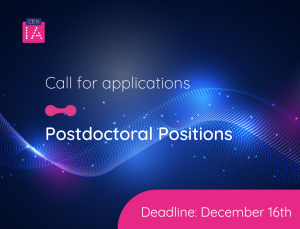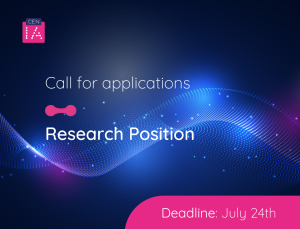At the beginning of the second half of the year, Cenia applied for two projects, one to the open innovation competition Public Challenges 2022, an initiative led by the Ministry of Science, Technology, Knowledge and Innovation, and the other to Corfo‘s Technological Program for Productive Transformation in the Face of Climate Change.
Cenia’s purpose is to take advantage of the opportunities presented by artificial intelligence to promote technological development in harmony with human beings and their environment, for the benefit of people and their communities. The researchers and development engineers that make up Cenia work with this goal in mind, carrying out first level research, designing technological innovation projects and strategies based on artificial intelligence to solve problems present in multiple sectors of society.
Traffic management based on digital data
The project “Intelligent Monitoring of Urban Mobility” (MIMU) was submitted to MinCiencia’s Public Challenges 2022 competition, and is being led by Francesca Lucchini, a software developer from Cenia’s development team, who would be the project manager in case the application is successful. The proposal suggests designing and implementing a platform that uses artificial intelligence tools to help prioritize resources and monitoring within an organization, in this case, applied to the management work carried out by the Traffic Control Operational Unit of the Ministry of Transportation and Telecommunications.
“Currently, the Traffic Control Operational Unit (UOCT), has a lot of data, especially from the cameras that collect information on the streets. The problem is that they lack a centralized system to support decision making and, in addition, they have no way to measure the effectiveness of the solutions”. Francesca Lucchini, explains that developing the MIMU platform would help centralize information from different data sources and provide statistical analysis and simulation, both to generate indicators to support action and performance indicators to evaluate the measures taken.
Artificial intelligence for the transformation of agricultural activity
The second project was submitted to Corfo’s Technological Program for Productive Transformation in the Face of Climate Change and is entitled “Intelligent Agriculture for Climate Change and Food Safety”, led by Cenia researcher Marcelo Matus. The project seeks to develop and apply artificial intelligence to transform agricultural activity into one of high productivity and sustainability, reducing water, land use and greenhouse gas footprints. This project arises in the context of accelerated climate change and its consequences, such as the water crisis, which has already lasted approximately thirteen years in our country, or the high emission of greenhouse gases from the agricultural sector. In this sense, the project proposes to develop agricultural activities in controlled environments, which considers highly technical greenhouses with artificial intelligence, sensors to monitor production requirements, LED lighting system, vertical crops and robotic assistants, among others.
Gonzalo Bustos refers to the benefits of this type of system: “They allow production planning throughout the year, regardless of the seasons and the place where they are installed. Thanks to their modularity, the soil is no longer a constraint, since they can be adjusted to the available space (rooftops, basements, containers, warehouses, etc.). The high production achieved in this type of systems would allow to better supply the food requirements of the population, and the proximity to consumption centers would help to reduce the carbon footprint associated with food transportation, and to reduce losses that can reach up to 25% along the entire supply chain.”
One of Cenia’s main tasks is to support the establishment in Chile of an innovation ecosystem based on the deployment of practical artificial intelligence technologies, identifying the main technological needs and priorities of Chilean society. In this sense, sustainable energies and sustainable urban development are two strategic areas in which the National Center for Artificial Intelligence places special emphasis, firstly, because they are strategic economic areas for Chile, and also because they are fundamental areas to reconcile the progress of society and the environmental impact.







